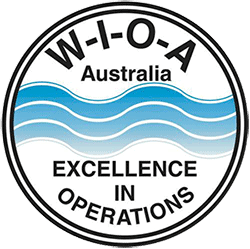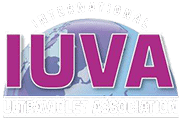Effectively sterilising water using safe UV water treatment can stop harmful microorganisms from reproducing in your drinking water. UV lamps blast viruses, bacteria and parasites with UV radiation, effectively deactivating them. Understanding UV lamp safety and using trusted, reputable products like UV Guard’s range will help you achieve safe, effective UV disinfection treatment.
This guide explores everything you need to know about UV lamp safety, including UV lamp safety features and answers frequently asked questions.
Are UV Lamps Safe to Use?
When practising UV lamp safety, it’s important to know how they work. UV lamps use an ultraviolet light spectrum (UV-C light) to damage and break down DNA in harmful microbes. Known as photolysis, this process stops DNA cells from replicating and can deactivate the microorganism.
Incorrect use will compromise UV disinfection safety. Skin and eye irritation in addition to UV exposure and microbial resistance are some consequences of improper usage. In a UV water treatment system, the lamp is often located inside a UV chamber, protecting users against exposure, ensuring safe, effective disinfection.
To ensure the safety and effectiveness of UV lamps:
- Never turn the UV lamp on when it is not installed inside the UV Chamber
- Replace the bulb at least once a year
- Choose UV lamp safety features like automatic shut-off switches
- Check the UV reactor for any signs of wear and damage
- Clean the quartz sleeve at least monthly, as the lamp won’t be as effective if there’s dirt on the sleeve.
What Safety Measures Do I Need To Take?
UV lamps are generally safe to use. Adhering to the safety measures outlined in the manufacturer guidelines is generally enough to keep you completely protected from injury.
Your lamp should never be switched on when it’s not enclosed in your UV system. This is because the system is designed with protective measures in place to stop UV exposure and its harmful effects.
The most significant risk of injury with a UV lamp occurs when it’s being installed or maintained. While you can change a UV lamp yourself, it’s recommended that an appropriately qualified technician install the lamp correctly. Your technician will show you how to use the lamp safely and explain the maintenance needed.
UV Light Safety
Ultraviolet light is radioactive. Overexposure to UV can cause a wealth of health issues, including sunburn, skin cancer, hyperpigmentation and retina burns. Sufferers of UV exposure also report feeling like they have glass in their eyes, known as photokeratitis, which can be moderate to severe and lead to long-term eye damage.
Taking extra safety precautions when performing residential UV water treatment, especially when handling your UV lamp, can protect you from overexposure risks.
UV Guard’s Commitment to UV Lamp Safety
Smart, simple and sustainable chemical-free water purification treatment solutions are UV Guard’s speciality. As such, when you choose a UV Guard product, you’re backed by a commitment to UV lamp safety that includes adherence to ISO9001:2015 quality standards and WaterMark certification.
All UV Guard products are manufactured with care and thoroughly tested to ensure they meet strict quality standards. Larger systems come with features like UV lamp safety switches and reactor temperature safety protocol, alleviating the risk of UV light exposure and burns.
One of the most popular products for commercial and residential UV water treatment is the S-Series. Able to achieve a flow rate of 50 cubic metres per hour and featuring 26 highly personalisable models, the S-Series is a durable, cost-effective workhorse that is perfectly suited for most needs. Each system is packed with safety features, including volt-free fault contacts, an SMS fault module and IP-rated controller enclosures crafted from polycarbonate and power-coated stainless steel.
FAQs About UV Lamp Safety
Embrace Safe Water Disinfection with UV Guard
Safe UV disinfection happens when you invest in high-quality products with UV lamp safety features and use them as per the manufacturer’s recommendations. UV Guard is committed to providing safe and reliable UV disinfection solutions. Our products are equipped with features like LED technology to disinfect without heat, no quartz or glass that can shatter and lamp safety switches to guarantee your safety.
Choosing a safe UV water treatment system means picking a reliable manufacturer that prioritises innovative technology and safety-forward UV solutions. UV Guard delivers high-quality, safe UV disinfection solutions at reasonable prices, and is the perfect option for residential and commercial needs.
Fill out this online form, and a member of our expert team will be in touch to help you choose the best UV water treatment system for your needs.
Share This Story, Choose Your Platform!
AWA Water Journal – June 2015 – New power supply boxes make mobile and off-grid water disinfection possible
Your Content Goes Here Your Content Goes Here UV-Guard’s NEW PLC controller has been mentioned in the June edition of the Australian Water Association (AWA) Water journal. The following text has been taken from the publication: “Off-grid and mobile water disinfection is now possible thanks [...]
Is using UV a better way to reduce chlorine levels in water?
Share Your Content Goes Here Your Content Goes Here Chlorine reduction can be an expensive and time-consuming ordeal for many industrial operations, but one company is honing in on helping businesses attain ultrapure water for processes and production. UV Guard [...]
Aquafides UV water disinfection systems
Share Your Content Goes Here Your Content Goes Here Aquafides UV water disinfection systems are validated to meet the stringent global performance benchmarks as part of DVGW, ÖVGW and SVGW certification. The DVGW (German Technical and Scientific Association for Gas [...]
UV water disinfection is the key to successful beer brewing
Share Your Content Goes Here Your Content Goes Here UV Guard supports Sydney-based brewers Malt Shovel with the management of its microbial-free beer production processes. Two ultraviolet (UV) disinfection systems are installed at the brewery. One is designed to disinfect [...]
Get in touch
This website has lots about us.
But it’s your needs that matter most.
Let’s talk.
Newsletter
Stay up-to-date with our very latest news, technology, offers and events.











